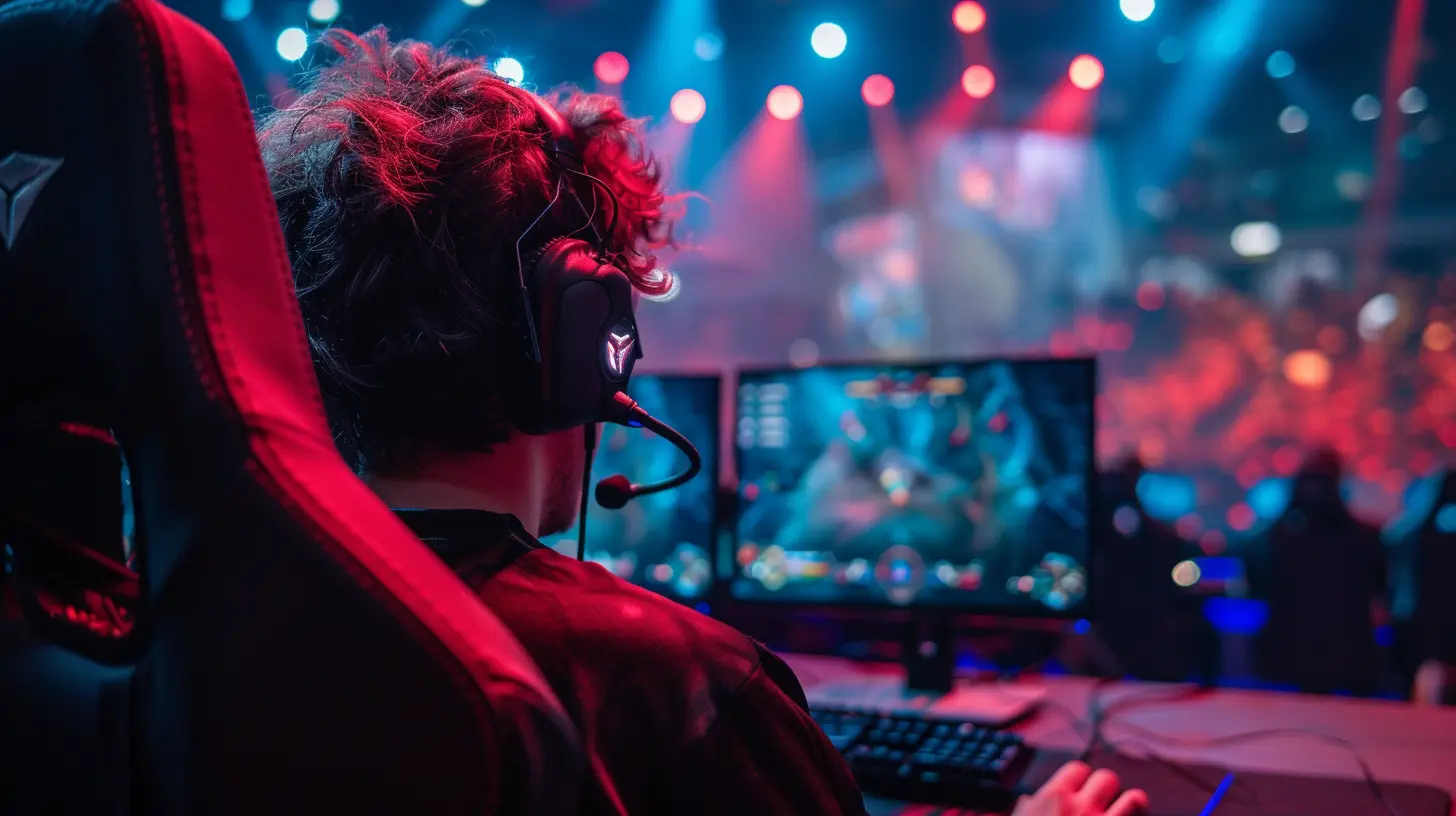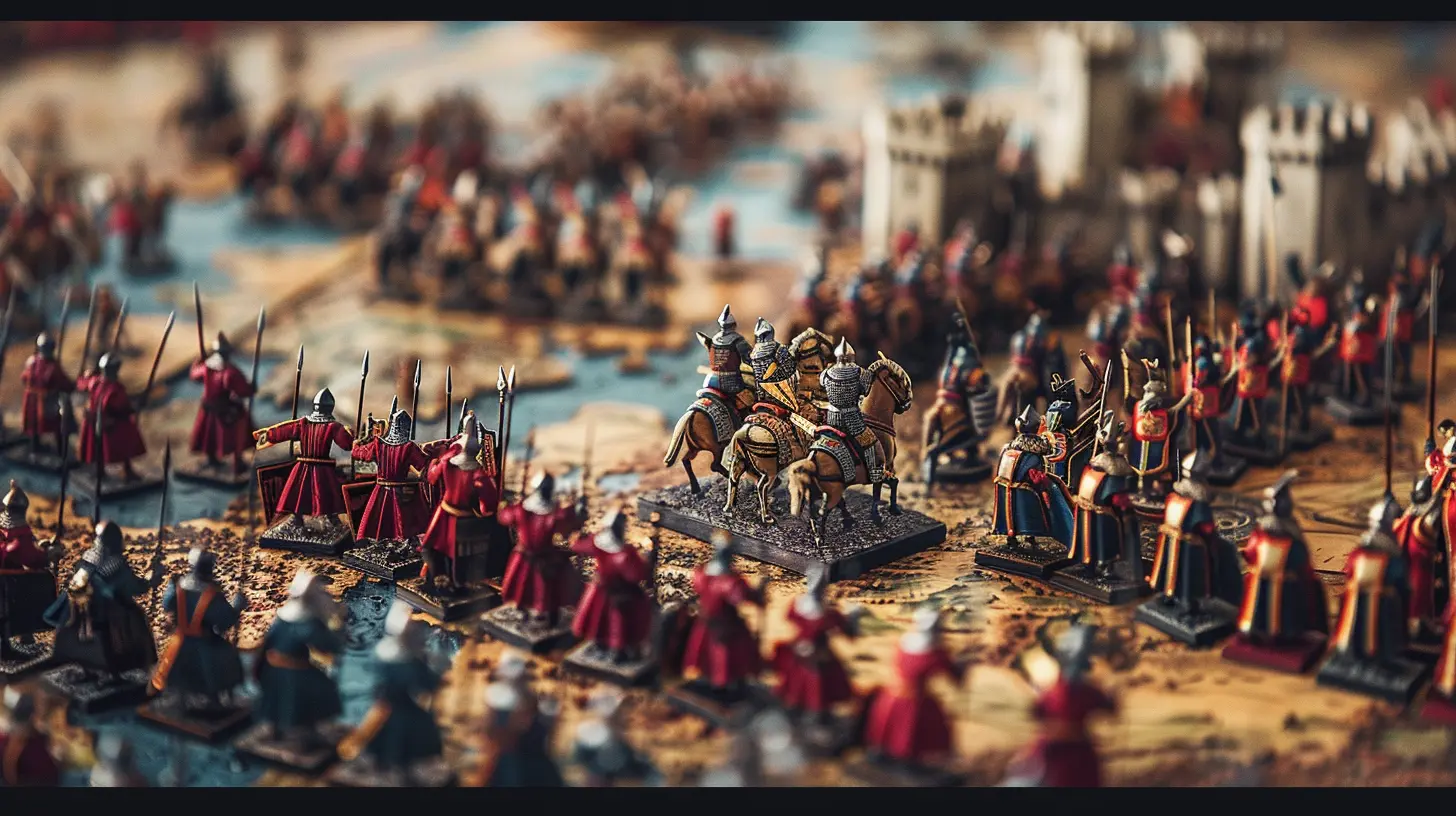How to Scout Your Opponents Before a Major Tournament
24 November 2025
Gaming tournaments are serious business, whether you’re playing an intense esports title, a casual party game, or even a strategic tabletop match. The stakes are high, and every player wants to walk away with the win (and, let’s be honest, the bragging rights). So, how do you tilt the odds in your favor before the competition even begins? One word: scouting.
Think of it this way—going into a tournament without scouting your opponents is like jumping into a dark room blindfolded. You’re setting yourself up for surprises, and not the good kind! Scouting can give you the edge you need to strike where it hurts and dodge what’s coming your way.
In this article, I’m breaking down practical, actionable, and downright sneaky tactics on how to scout your opponents before a major tournament. Let’s dive in and get you prepped like a pro!
Why Scouting is Critical in Competitive Gaming
Before we dive into the how, let’s take a moment to appreciate the why. Scouting isn’t just about finding out who you’re up against—it’s about identifying their strengths, weaknesses, habits, and tendencies so you can create a game plan that plays to YOUR strengths.Imagine being a boxer stepping into the ring. Would you prefer to fight blindfolded or study your opponent's moves beforehand? Of course, the choice is a no-brainer. The same logic applies to competitive gaming.
Here’s what scouting can do for you:
- Identify Bad Habits: Learn how opponents react under pressure or what predictable patterns they tend to fall into.
- Prepare Counter-Strategies: Find ways to neutralize their strengths and exploit their weaknesses.
- Boost Your Confidence: There’s comfort in knowing what you’re up against. Surprises are not your friend during a tournament.
Where to Start: Digging into Your Opponent’s History
Scouting begins with research—yes, basic detective work. In this digital age, nearly everyone leaves behind a digital footprint, so locating information about your opponents isn’t as hard as you’d think.1. Scour Social Media and Streaming Platforms
Twitch, YouTube, Facebook Gaming—they’re gold mines of intel. Players love bragging about their skills or showcasing gameplay, and you can exploit this to your advantage.- What to look for:
- Pay attention to their favorite strategies, go-to characters or loadouts, and overall playstyle.
- Watch for patterns—do they get overly aggressive when they’re losing? Do they turtle up and prioritize defense?
- Pro Tip:
Look for recent uploads because strategies evolve. Their gameplay from six months ago might not be relevant anymore.
2. Check Tournament Records
If your competition has a history of entering tournaments, chances are there’s a trail you can follow. Many tournaments will upload match footage or recap highlights—perfect resources for scouting.- Websites to check: Esports tournament hubs like Smash.gg, Challonge, or Liquipedia.
- What to note:
- Who knocked them out in previous tournaments?
- What strategies worked against them?
- Are they known for consistently strong placements or shaky performances?
3. Join Community Groups and Forums
If you’re playing a competitive game, there’s likely an active online community talking about players, matches, and strategies. Reddit threads, Discord servers, and even Twitter can hint at an opponent’s playstyle and reputation.- Rhetorical Question:
What better way to know someone than hearing what others say about them, right?
In-Game Scouting: Sleuthing Like a Pro
What if you have the luxury of playing against your opponent in casual matches or "friendlies" before the tournament? Use it wisely! Think of it as a sneak peek at their game plan.1. Study Their Movements
Pay attention to how your opponent opens rounds or approaches certain situations. For example:- Are they aggressive out of the gate?
- Do they favor defensive positioning?
- How often do they make risky plays?
Understanding their baseline tendencies can help you predict how they’ll behave during high-pressure moments.
2. Test Their Limits
This is where you get to play detective during casual matches. Try poking at their defenses or baiting them into making mistakes. The goal isn’t necessarily to win but to gather information.- Do they fall for fake-outs or feints?
- Are there specific moves or builds they struggle to counter?
Think of it like sparring before a boxing match—you’re here to gather data, not to go all-in.
3. Analyze Adaptability
Here’s a sneaky trick: alter your strategy halfway through a match and see how they react. Can they adapt on the fly, or do they stick to their comfort zone? Opponents who can’t adapt are much easier to exploit in a tournament setting.
Tech Tools for Scouting
We live in a world of advanced tools, so why not use them to your advantage? Here are some game-specific and general tools you can leverage for scouting:1. Use Replay Analysis Tools
Many games now feature built-in replay systems or support third-party analysis tools. Use these to break down both your own gameplay and your opponents’. Look for split-second decisions, positioning, and habits.- Examples of replay tools:
- CS:GO: Demo Viewer
- Rocket League: Replays and BacchusMod
- League of Legends: Pro View
2. Leverage Third-Party Stats Websites
Games like Overwatch, Valorant, or Fortnite often have stat-tracking websites that let you look up player profiles. These sites reveal useful info like win rates, preferred characters, favorite maps, or even their kill/death ratios.- Focus on their trends. Do they consistently perform well on certain maps or with specific characters? Use this data to predict their picks and bans.
Mind Games Matter Too
Scouting isn’t just about facts and figures—it’s also psychological. You can learn a lot about someone’s mindset just by observing them.1. Watch Their Body Language (If Possible)
If the tournament is in-person, pay attention to how your opponents react to wins and losses during warm-up games. Do they tilt easily, or are they calm and composed? Knowing this can help you mentally dominate later.2. Don’t Underestimate Social Media Posts
You’d be surprised how much people reveal about themselves on social media. Some players tweet about their frustrations, current struggles, or even their strategies. Grab your metaphorical magnifying glass and scroll away.How to Save All This Information Without Getting Overwhelmed
By this point, you might be thinking, "Okay, this sounds fantastic, but how the heck do I keep track of all this info?" Don’t worry—you don’t need to keep it all in your head like a supercomputer.1. Create a Document or Spreadsheet
Keep it simple. Make a Google Doc or Excel sheet where you track each opponent's name, playstyle, strengths, weaknesses, and your potential counter-strategies. That way, everything’s in one convenient place.2. Prioritize Key Opponents
Scouting everyone is great, but focus your efforts on the top threats. If you spend too much time on the underdogs, you might miss clues about the real competition.The Perfect Balance: Scout Without Obsessing
Finally, remember not to overdo it. Scouting is important, but at the end of the day, you need to trust your instincts and the preparation you’ve put into your own gameplay. Scouting is the map, but YOU are the one driving the car.Sometimes, players get so caught up in preparing counter-strategies that they forget to focus on their own mechanics and decision-making. Don’t fall into that trap!
Final Thoughts
Scouting opponents before a major tournament isn’t just an optional step—it’s a game-changer. Whether you’re a casual competitor dipping your toes into the competitive scene or a seasoned pro looking to gain a new edge, these tips will help you outsmart the competition and approach any tournament with confidence.The next time you’re gearing up for a big event, remember this: Every second you spend scouting is an investment in your success. So, get out there, channel your inner Sherlock Holmes, and make that trophy yours!
all images in this post were generated using AI tools
Category:
TournamentsAuthor:

Lucy Ross
Discussion
rate this article
2 comments
Zayne Watson
Absolutely loved this article! Scouting opponents is such a game-changer! The tips are spot-on and super helpful. Can’t wait to put them into practice before my next tournament! Let’s get that victory! 🌟🎮
November 27, 2025 at 4:27 AM

Lucy Ross
Thank you so much! I'm glad you found the tips helpful. Best of luck in your tournament—go get that victory! 🌟🎮
Clarissa Pope
Great insights on opponent scouting! Your tips on research and observation are invaluable for players looking to gain a competitive edge. Understanding opponents’ strategies can truly enhance performance in tournaments. Looking forward to more articles like this!
November 25, 2025 at 4:11 AM

Lucy Ross
Thank you for your kind words! I'm glad you found the tips helpful. Stay tuned for more insights!


